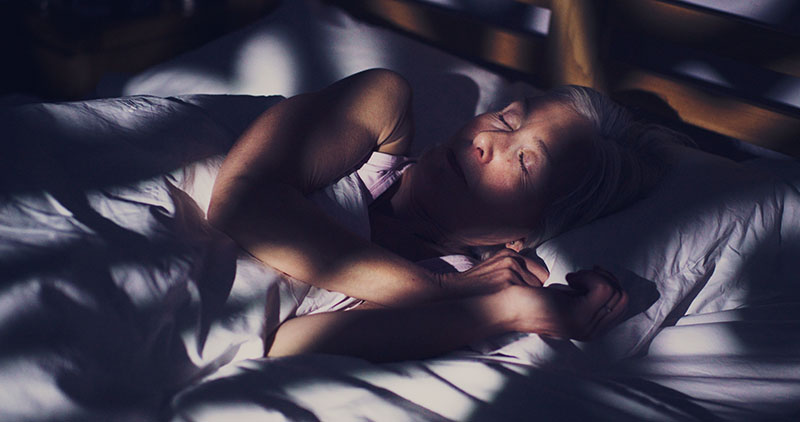Briefing:
We measure our steps. We count calories. We check our blood pressure. But the single most powerful health tool for living longer and feeling sharper? Most people don’t even think about it. It’s called sleep.
The Forgotten Pillar of Health
When people talk about health, they usually talk about three things: diet, exercise, and maybe stress management. Rarely does anyone put sleep at the top of the list.
But ask any researcher studying longevity, and they’ll tell you: sleep is the foundation everything else rests on.
If you eat a perfect diet but don’t sleep, your blood sugar will still spike. If you exercise hard but don’t sleep, your muscles won’t repair. If you try to think clearly, but you’re running on fumes, your brain simply won’t cooperate.
Sleep is the body’s repair system. And yet, millions of Americans — especially older adults — either don’t get enough or accept poor sleep as “just part of aging.”
The truth is, poor sleep is not inevitable. It’s a problem worth fixing — because your longevity depends on it.
What Happens When You Don’t Sleep Enough
Sleep isn’t just “rest.” It’s an active process where your body repairs and resets itself. Skimp on it, and here’s what happens:
- Blood Sugar Control Breaks Down: Sleep deprivation makes you more insulin resistant, which raises your risk of diabetes. Even one night of poor sleep can throw off glucose regulation.
- Your Brain Suffers: Poor sleep increases risk of Alzheimer’s and dementia. That’s because during deep sleep, your brain literally flushes out toxic proteins. Cut short on deep sleep? That waste piles up.
- Your Heart Takes a Beating: People who consistently sleep less than 6 hours a night have a higher risk of high blood pressure, heart disease, and stroke.
- Your Mood Collapses: Sleep debt is linked to depression, anxiety, and irritability. It’s harder to handle stress without good sleep.
- Your Immune System Weakens: Ever notice how you catch a cold more easily when you’re run down? Sleep is when immune cells recharge.
It’s not an exaggeration: poor sleep is a slow form of self-destruction.
Why Sleep Gets Harder After 50
Many older adults complain about sleep — and for good reason. Sleep patterns naturally change with age. But “bad sleep” shouldn’t be brushed off as “normal aging.”
Here’s what’s going on:
- Circadian Shifts: Your body clock shifts earlier. You get sleepy earlier, wake up earlier, and often don’t get the deep, restorative sleep you once did.
- Medical Conditions: Arthritis, reflux, prostate issues, or sleep apnea can disrupt sleep.
- Medications: Common prescriptions (for blood pressure, allergies, pain) can fragment sleep.
- Lifestyle Factors: Less time outdoors, less physical activity, and more screen time all affect sleep quality.
Yes, sleep may change with age — but it can still be protected and improved.
The Stages of Sleep (And Why They Matter)
Think of sleep as having two big categories:
- Non-REM Sleep (light → deep)
- Deep sleep is where tissue repair, immune function, and physical restoration happen.
- REM Sleep (dream sleep)
- This is critical for memory, learning, and emotional regulation.
As we get older, we often get less deep sleep and less REM. That’s one reason why protecting sleep becomes more important with age — not less.
What Quality Sleep Looks Like
For most adults, the sweet spot is 7–9 hours of sleep per night. But it’s not just hours — it’s quality.
- Falling asleep within 15–30 minutes of going to bed.
- Staying asleep (with maybe one quick bathroom trip).
- Waking up feeling refreshed, not groggy.
If you’re not hitting these marks, your sleep needs work.
Practical Fixes for Better Sleep
Now, let’s talk solutions. The goal here isn’t perfection — it’s progress. Every step you take toward better sleep improves your health.
1. Respect the Clock
- Go to bed and wake up at the same time daily — even weekends.
- This consistency strengthens your body’s natural rhythm.
2. Control Your Environment
- Keep your room cool (65–67°F is ideal).
- Use blackout curtains or a sleep mask.
- Make your bedroom quiet — use earplugs or white noise if needed.
3. Manage Evening Habits
- Avoid heavy meals and caffeine after 2pm.
- Alcohol may knock you out, but it ruins deep sleep — limit evening drinks.
- Turn off screens an hour before bed — blue light tricks your brain into thinking it’s daytime.
4. Move During the Day
- Daily movement — even a short walk — improves sleep quality.
- But avoid intense exercise within 2–3 hours of bedtime.
5. Mind Your Mind
- Stress is a sleep killer. Try journaling, prayer, or light reading before bed.
- Avoid “doomscrolling” or news right before sleep.
What If You Still Struggle?
Sometimes sleep problems aren’t just about habits. They can be medical. Common culprits include:
- Sleep apnea: Breathing interruptions during sleep. Very common, especially in older men.
- Restless leg syndrome: Discomfort in the legs that disrupts sleep.
- Chronic pain: Arthritis, back pain, or other issues.
If you snore loudly, wake up gasping, or always feel tired despite 8 hours in bed — talk to your doctor. Treating sleep disorders can be life-changing.
The Ripple Effect of Better Sleep
It’s easy to underestimate sleep. But when you fix it, everything changes:
- Blood sugar stabilizes.
- Mood improves.
- Memory sharpens.
- Energy returns.
- Risk of chronic disease drops.
You don’t have to overhaul your life. Start with one change — like going to bed at the same time every night or walking after dinner — and build from there.
Final Takeaway
Sleep is not wasted time. It’s where your body builds tomorrow’s health.
If you want to live longer, prevent disease, and stay sharp into old age, don’t just count your steps. Count your hours in bed. Because sleep is the one longevity tool too many people ignore — until it’s too late.
Sources for Further Reading
- Walker M. Why We Sleep (2017).
- NIH: “Sleep and Health” — nih.gov
- Harvard Health: “The Importance of Sleep” — health.harvard.edu
- CDC: Sleep Data — cdc.gov/sleep
- American Academy of Sleep Medicine — asm.org

